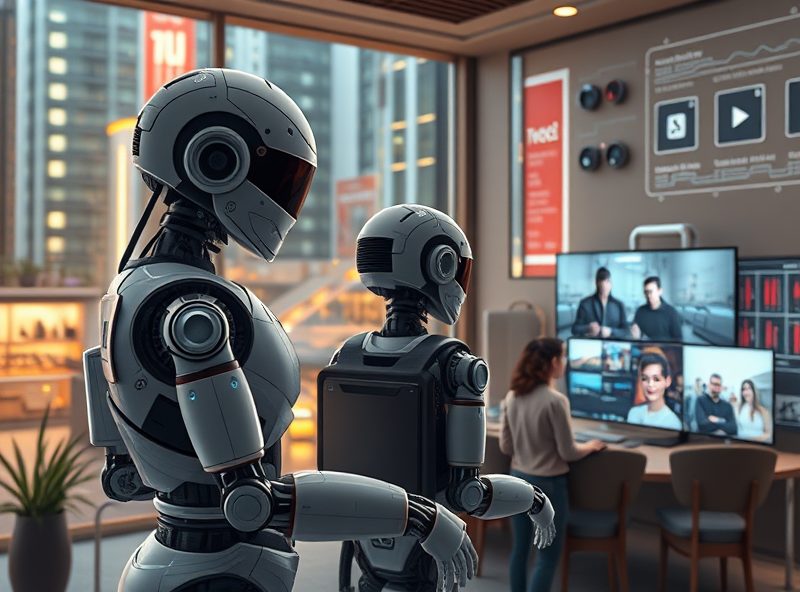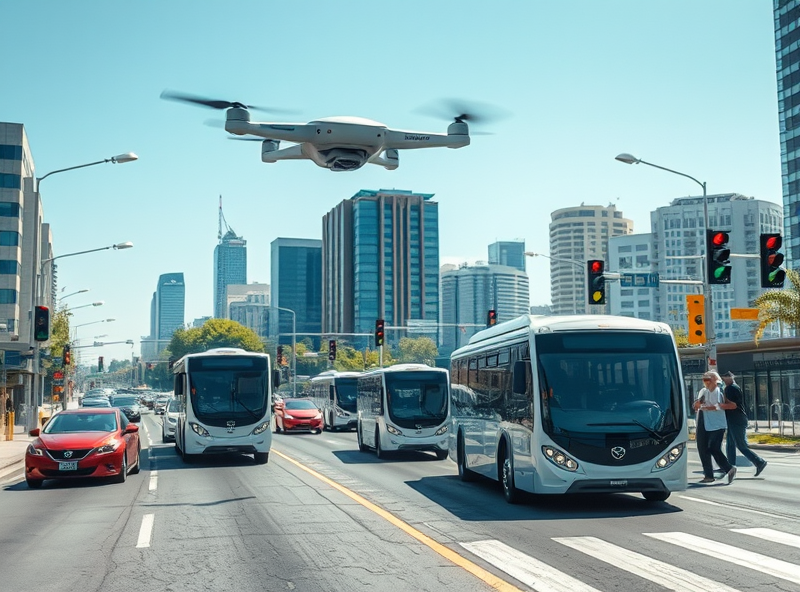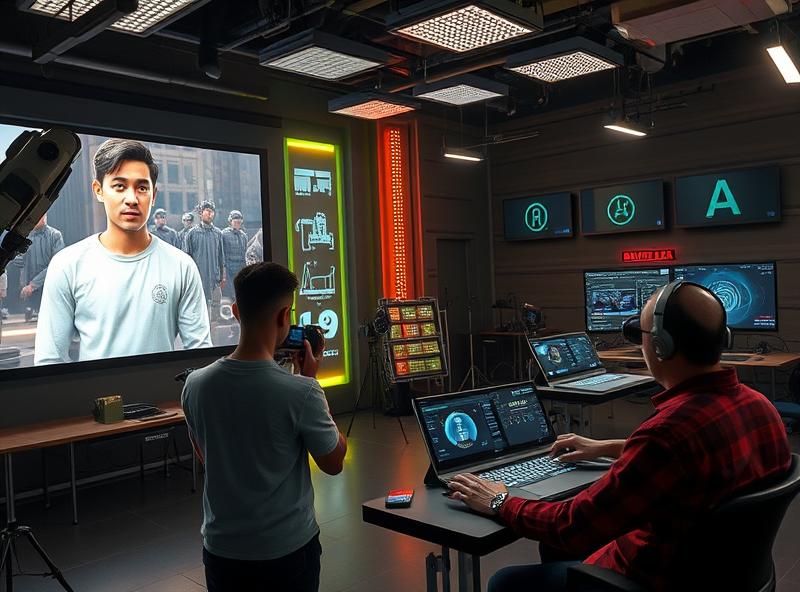
How AI is Revolutionizing Daily Life: Practical Applications and Benefits
AI in Transportation

Artificial Intelligence (AI) is transforming the transportation industry in remarkable ways, making travel safer, more efficient, and environmentally friendly. One of the most significant advancements is the development of autonomous vehicles. Self-driving cars, powered by AI, use sensors, cameras, and machine learning algorithms to navigate roads, avoid obstacles, and ensure passenger safety. This technology has the potential to reduce traffic accidents caused by human error and improve accessibility for individuals who cannot drive.
AI is also optimizing public transportation systems. Smart algorithms analyze real-time data to predict traffic patterns, manage schedules, and reduce delays. For instance, AI-powered traffic lights can adjust their timing dynamically to ease congestion, saving time and reducing fuel consumption. Additionally, ride-sharing platforms like Uber and Lyft use AI to match passengers with drivers efficiently, minimizing wait times and optimizing routes.
Moreover, AI is playing a critical role in logistics and freight transportation. Companies are using AI to plan delivery routes, predict maintenance needs for vehicles, and enhance supply chain efficiency. These innovations not only save costs but also contribute to reducing carbon emissions by minimizing unnecessary trips.
The integration of AI in transportation is paving the way for a smarter, more sustainable future. Whether you’re commuting to work or waiting for a package delivery, AI is working behind the scenes to make your experience smoother and more reliable.
AI in Retail and E-Commerce

Artificial Intelligence is transforming the retail and e-commerce landscape, making shopping experiences more personalized, efficient, and enjoyable. AI-powered recommendation systems analyze customer preferences, browsing history, and purchase patterns to suggest products tailored to individual tastes. This not only enhances customer satisfaction but also boosts sales for businesses. Additionally, AI-driven chatbots provide 24/7 customer support, answering queries instantly and guiding users through their shopping journey. Inventory management has also seen significant improvements, with AI predicting demand trends and optimizing stock levels to reduce waste and ensure product availability. From virtual try-ons using augmented reality to voice-activated shopping assistants, AI is truly revolutionizing how we shop and interact with brands.
AI in Finance

Artificial Intelligence is transforming the finance industry in remarkable ways, making financial processes smarter, faster, and more secure. One of the most significant applications is fraud detection. AI algorithms analyze vast amounts of financial data in real-time to identify unusual patterns or anomalies, helping to prevent fraudulent activities. Additionally, AI-powered robo-advisors are becoming increasingly popular. These digital financial advisors use advanced algorithms to provide personalized investment advice based on an individual’s financial goals, risk tolerance, and market trends. Moreover, algorithmic trading, powered by AI, enables faster and more efficient stock trading by analyzing market data and executing trades at optimal times. By automating these processes, AI not only saves time but also reduces human error, ultimately making financial management more accessible and efficient for everyone.
AI in Entertainment

Artificial Intelligence is transforming the entertainment industry in ways that are both exciting and innovative. AI is now being used to create personalized recommendations on streaming platforms like Netflix and Spotify, ensuring that users discover content tailored to their tastes. It also plays a significant role in content creation, such as generating realistic visual effects in movies or even writing scripts. Video game developers are leveraging AI to create smarter, more adaptive non-player characters (NPCs) that enhance the gaming experience. Furthermore, AI-powered tools are enabling musicians and artists to compose music, design visuals, and even create virtual performances. These advancements not only make entertainment more immersive but also open up new creative possibilities for artists and producers.



